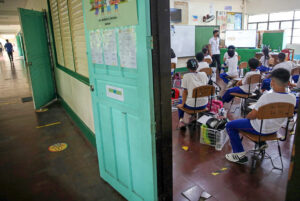PHL among SEA countries where smartphones are unaffordable — iPrice

Smartphones in the Philippines are among the “least affordable,” according to a recent study by e-commerce aggregator iPrice Group that compared mobile phone prices and monthly wages in Southeast Asia.
According to Highly Connected, But Highly Priced: Smartphones Out of Reach for Many in SEA, the average price for a mid-range smartphone in the Philippines is two times the average monthly salary — second in expensiveness only to Vietnam — where it’s 2.2 times the average monthly salary.
Even low-end smartphones cost over 70% of the average monthly wage in Indonesia, the Philippines, and Vietnam, compared to Malaysia and Singapore where they cost just a third of a month’s salary or less.
Meanwhile, high-end models are simply out of reach for many in the three countries where smartphones are less affordable, costing three to six times the monthly salary. In Malaysia and Singapore, these cost just around a month’s wage or less.
This shows that, despite widespread mobile adoption, smartphone affordability varies widely across the region, according to iPrice.
“This appears to be driven not only by differences in average income levels, but also by variations in smartphone pricing where strong demand in some local markets is outstripping supply and allowing online sellers to increase pricing,” it said in its report.
iPrice also found that online sellers offered the latest iPhone models with only 10% price variation between markets, while top-end models from Oppo, Vivo, and Samsung varied up to 50% between markets, with Indonesia and the Philippines at the higher end.
The study is based on the e-commerce site’s catalog of 7.5 billion offers from various marketplaces, sellers, and brands, and pricing from 250,000 smartphone listings of Apple, Samsung, Vivo, and Oppo. For each brand, high-end, mid-range, and low-end specification phones were selected.
This information was then supplemented with average monthly salary data from the World Bank to assess affordability. — Brontë H. Lacsamana




